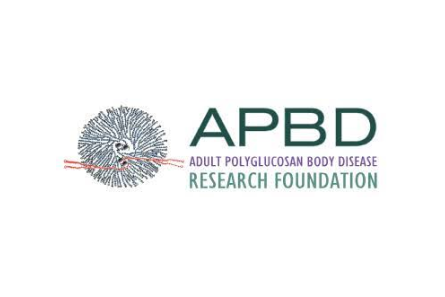APBD Research Foundation
Cycle 1
Adult Polyglucosan Body Disease (APBD) is a genetic disorder that results in the low activity of an important enzyme, Glycogen Branching Enzyme (GBE1), which is used to make glycogen. When there is low activity of this enzyme, newly formed glycogen is manufactured incorrectly into long strands called polyglucosan bodies. These polyglucosan bodies cannot be used for fuel and build up inside nerve cells. This causes damage to these nerves. The damage often results in numbness, and eventually weakness in the muscles controlled by these nerves.
Last updated 04/30/2025
Clinical
Disease Class
Genetic diseases
Inherited metabolic disorder
Neurological diseases
Body Systems
Cardiovascular / Circulatory
Digestive
Endocrine
Hematopoietic / Lymphatic / Immune
Metabolic
Muscular / Skeletal
Nervous / Sensory
Renal / Urinary / Excretory
Reproductive
Organs
Adrenal glands
Bladder
Blood
Brain
Eyes
Heart
Intestines
Liver
Lymph fluid, nodes, ducts, vessels
Muscles
Nerves
Prostate gland
Spinal cord
Stomach
Testes
Throat/pharynx
Known Genetic Link
Yes, one or more genes directly cause the condition
causative_genes
GBE1
contributory_genes
None specified / unknown
Type of Inheritance
Autosomal recessive
Newborn Screening
No
Disease Mechanism(s)
Enzyme deficiency
Glycogen pathway dysregulation
Glycogen storage disease
Inherited metabolic disorder
Pathogenic mutation
Age of Onset
Adulthood (age 18-64)
Average Age at Diagnosis
Adulthood (age 18-64)
Life Expectancy
Elderly (age 65+)
Affected Sex(es)
Female
Male
National Prevalence
1001-10000
Global Prevalence
10000+
National Incidence
Unknown
Global Incidence
Unknown
Populations and/or ancestry with higher prevalence
Ashkenazi Jews
Symptoms / Phenotypes
balance problems
cognitive decline
dementia
fatigue
gait abnormalities / gait disturbance
muscle stiffness
muscle weakness
neurogenic bladder
orthostatic hypotension
paralysis
peripheral neuropathy
sexual dysfunction
spasticity
thermal dysregulation
vision problems
Biomarkers
Diagnostic
· Pathogenic mutations in the GBE1 gene
Existing Therapies
None
Organizational & Research
Cell Lines
Fibroblasts
Lymphoblasts
Cell Lines, Institution
Not specified
Cell Lines, Involvement
Unspecified
Cell Lines, share
No
Disease Model
Mouse
Disease Model, Involvement
Funded
Disease Model, share
Unsure
Clinical Trial Role
Data analysis
Data sharing
Focus group
Funding
Meeting with regulators
Outcome measures, development
Recruitment and outreach, patients
Recruitment and outreach, trial sites/physicians
Results dissemination, publication
Study material design, review (not protocol)
Study protocol design, review
Center of Excellence, Institution
None
Registry
Yes, we have collaborated on a registry
Data Collected, Registry
Clinical data
Electronic health records/electronic medical records
Genetic data
Longitudinal natural history data
Medication usage
Patient contact info
Patient-reported data
Data Entered by, Registry
Patients
Platform, Registry
Other
Natural History Study
Yes, we have collaborated on a natural history study
Data Collected, Natural History Study
Clinical endpoints (outcomes)
Electronic health records/electronic medical records
Genetic data
Imaging data
Medication usage
Other
Patient-reported data
Prospective data
Retrospective data
Platform, Natural History Study
REDCap
FDA Patient Listening Session
Yes
FDA Patient-Focused Drug Development (PFDD) Program
No
ICD Codes
We use an ICD-10 code capturing the family of diseases to which our disease belongs
Yes, we have an ICD-10 code specific to our exact disease
Diagnostic Guidelines
Yes, we have guidance available on our website
Yes, we have published formal guidelines in a peer-reviewed journal
Science Advisory Board Policies
No policies
Research Network Policies
Has CRN but no policies
Research Roadmap
Yes we have a Research Roadmap, and will share policies
International Chapters
None
International Partners
Europe
Middle East
